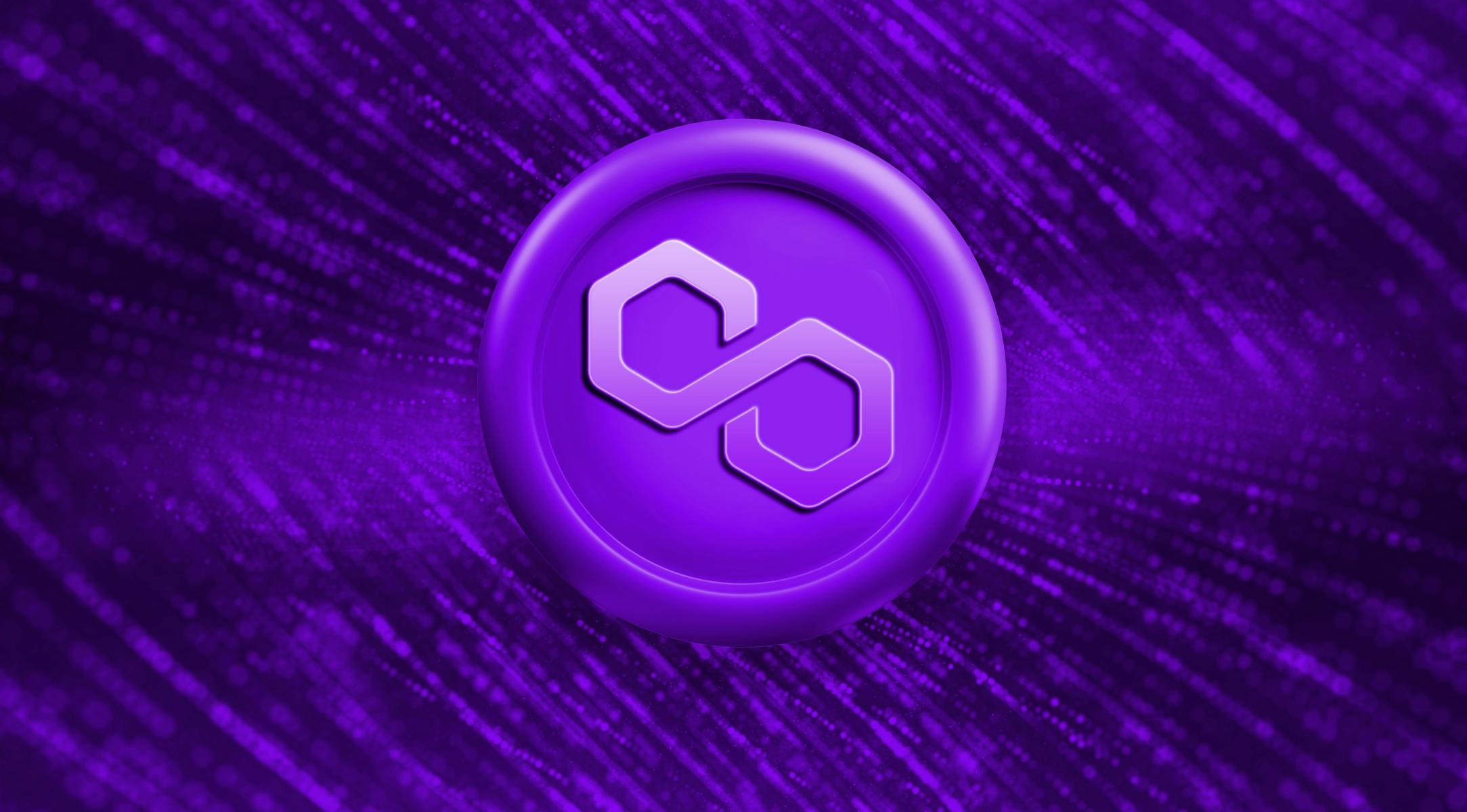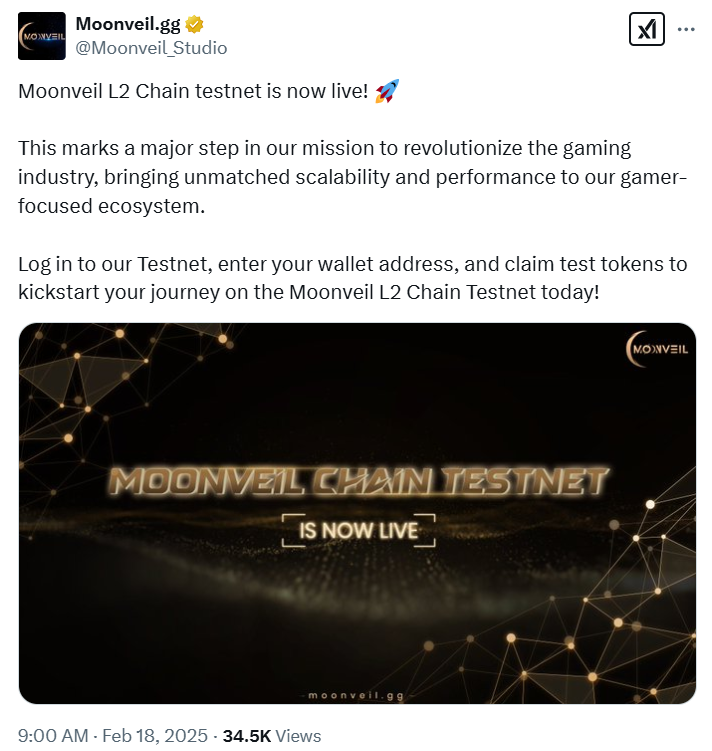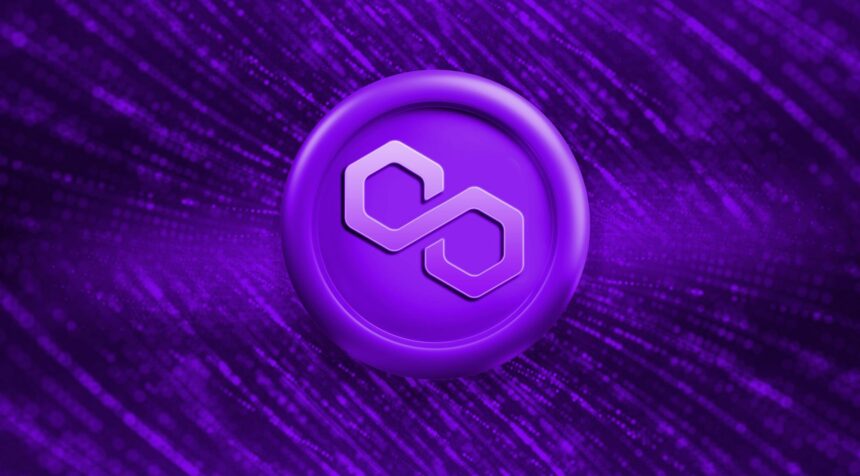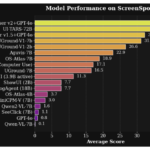
- Gaming startup Moonveil Studio has launched its L2 game testnet on Polygon.
- Polygon is advancing its growth beyond Web3 gaming and making waves in DeFi.
Moonveil Studio, a Web3 gaming company, has launched its highly anticipated Layer-2 (L2) Chain testnet, powered by Polygon CDK. The Moonveil testnet marks a major step in the firm’s mission to revolutionize the gaming industry.
Moonveil Plugs into Polygon for Gaming Scalability
According to the announcement, Moonveil taps into Polygon Chain Development Kit (CDK), an open-source codebase for developers launching L2 chains, supported by zero-knowledge (ZK) proofs. The team noted that Polygon CDK chains offer seamless interaction and share data via AggLayer for Moonveil to level up gaming.

By leveraging Polygon CDK and AggLayer, Moonveil aims to improve the scalability and performance of its gamer-focused ecosystem. The team urged interested users to log into the testnet to claim test tokens to kickstart their journey on the Moonveil L2 Chain.
As highlighted in our previous article, the Moonveil L2 Chain testnet offers developers a customizable and scalable solution. As regards users, the testnet offers them a seamless, fast, and secure gaming experience.
Moonveil’s L2 Chain achieves high performance through fast network finality, frequent validity proofs, and Polygon Zero technology. It also utilizes Polygon zkEVM to reduce transaction costs, making gas fees a non-issue for gamers.
On the other hand, Polygon’s AggLayer, an interoperability infrastructure, provided unified liquidity across chains. This is essential for smooth interoperability and collaboration between game products. Due to cross-game interoperability, developers at Moonveil foresee the ability to organically manage the gaming life cycles of multiple titles.
Polygon is gaining increased attention in the Web3 gaming space due to its CDK and AggLayer offerings. Last year, Web3 game infrastructure protocol Ronin revealed plans to develop its zk-powered Layer 2 solution using Polygon’s CDK. As noted in our earlier post, this integration seeks to offer faster and more seamless transactions without sacrificing decentralization.
Key Polygon Focus in 2025
Polygon’s allure transcends beyond gaming to other sectors like Decentralized Finance (DeFi) and tokenization. The blockchain’s adaptability appeals to people eager to investigate fresh blockchain industry opportunities. This is seen in Polygon’s rising integration with other blockchain platforms.
Recently, Karpous, a platform providing accessible Real-World Assets, collaborated with Polygon to create a unique solution for tokenizing physical assets. As CNF covered in its latest report, Polygon’s L2 network is key to Karpous’ mission of expanding RWA to restricted markets.
Lumia, another blockchain-based project, has also announced intentions to tokenize $220 million in Istanbul real estate, leveraging Polygon’s technology stack. Lumia operates its network on a custom L2 solution built using Polygon’s CDK, offering scalability, modularity, and enhanced data availability.
Besides its tokenization efforts, Polygon has revealed plans to launch the AggLayer mainnet in February. Also, Polygon seeks to maintain leadership in Web3 infrastructure, capitalizing on the ZK technology and cross-chain liquidity.






